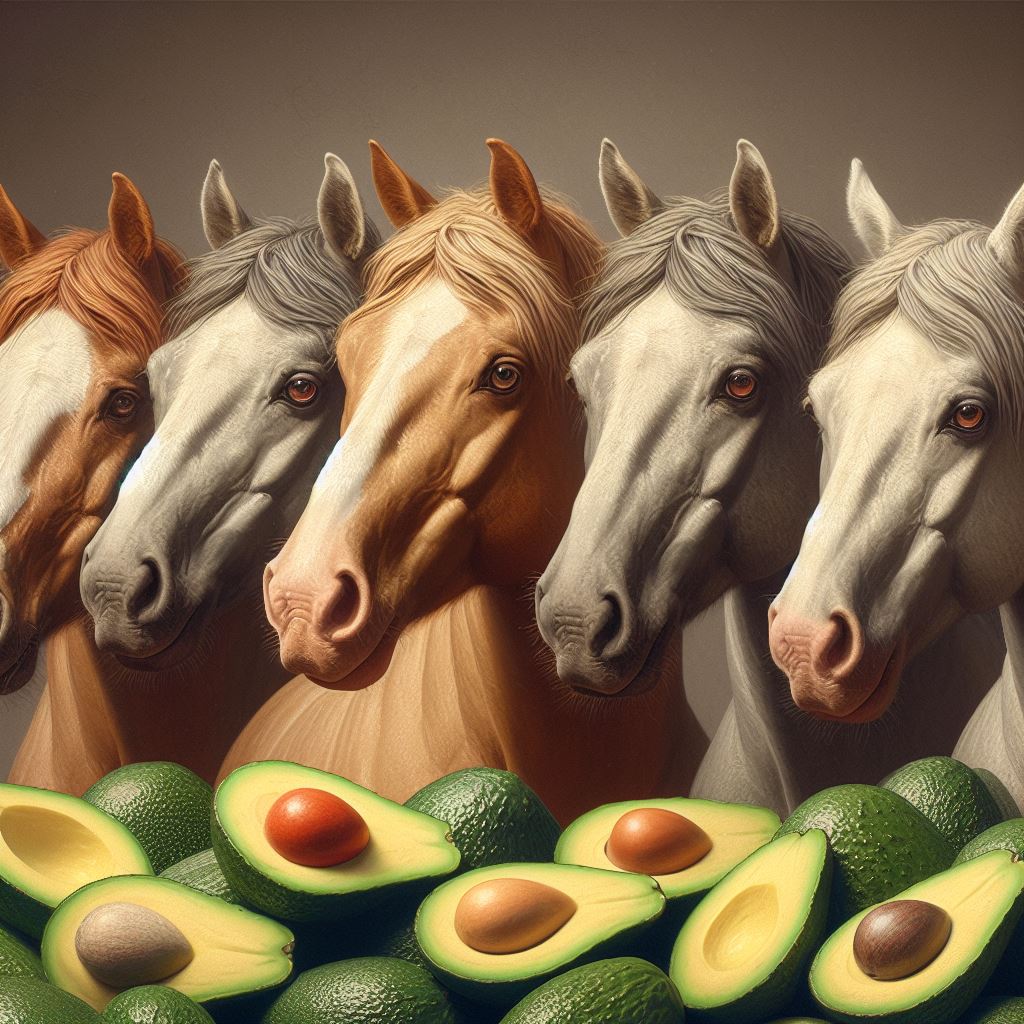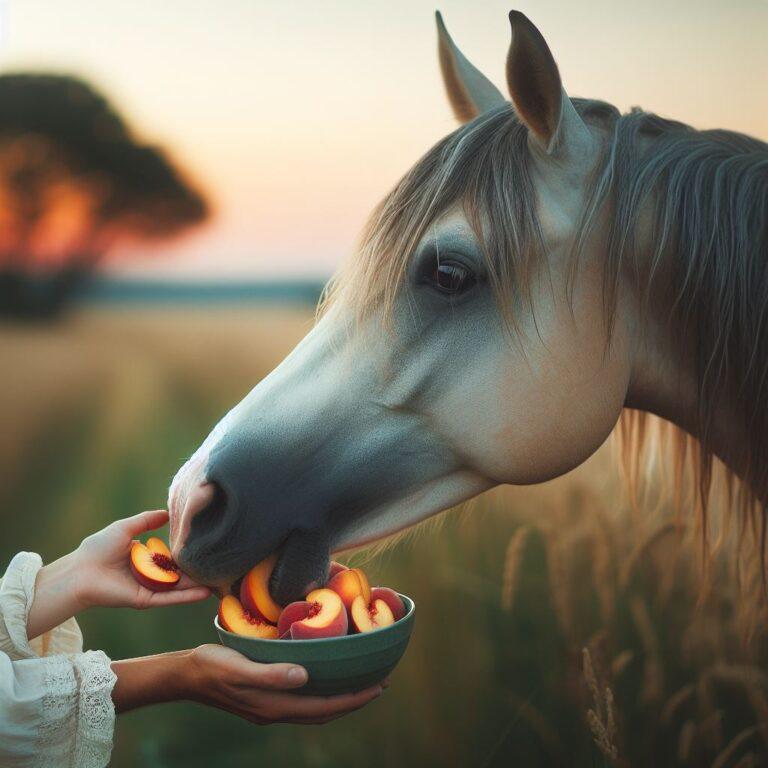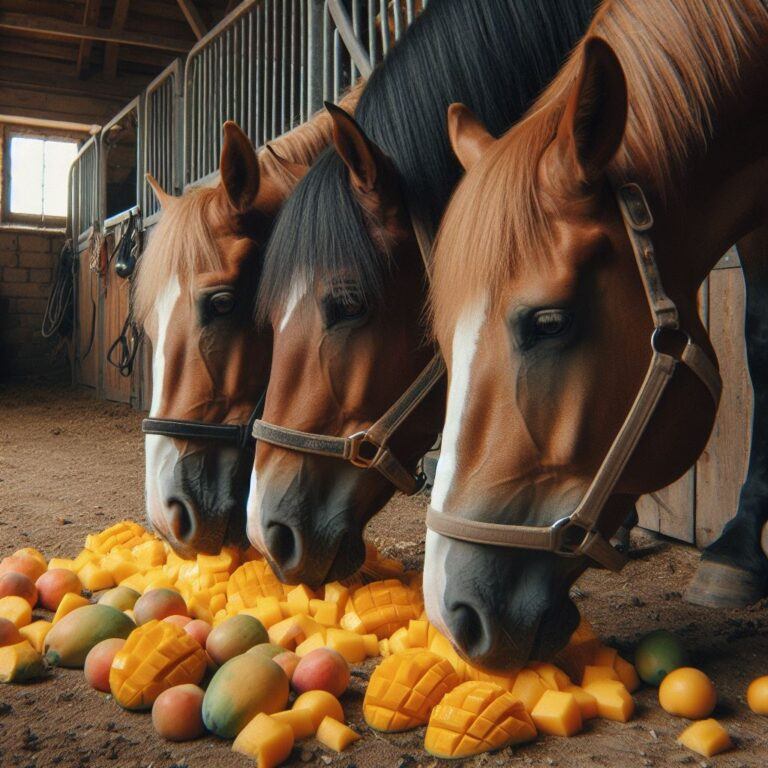Can Horses Safely Eat Avocados
No, horses cannot safely eat avocados. While avocados are a nutritious snack for humans, they contain a substance called persin, which can be highly toxic to horses. Even in small amounts, this natural fungicide can cause heart and respiratory issues, leading to significant health risks.
How does avocado toxicity impact horses? The main culprit is persin. Found in the leaves, bark, seed, and even the fruit, persin affects horses differently than humans.
Horses that ingest any part of an avocado may experience respiratory distress, edema, or heart damage.
It’s crucial for us, as horse owners to understand the severity of these potential symptoms and the reasons behind them.
While persin is harmless to us, in horses, it disrupts cellular functions, particularly in heart and lung tissue. This is why even minimal exposure to avocados can be dangerous.
Your response should be swift if you suspect your horse has accidentally consumed avocado. Immediate veterinary intervention is required to manage and mitigate any health complications.
Monitoring your horse for adverse reactions is also essential after accidental ingestion.
Understanding the Dangers of Avocado for Our Horse’s Health
Horses and avocados just don’t mix. Researchers have closely examined the effects of various foods on horses, and time and again avocados come up as a no-go.
The presence of persin, a fungicidal toxin, makes avocados particularly unsuitable. It’s not just the fruit, the leaves, seeds, and bark also contain this dangerous compound.
When a horse ingests avocados, even in small amounts, it may show clinical signs that indicate poisoning.
These can range from mild gastrointestinal upset to severe, life-threatening symptoms such as respiratory distress or heart problems.
It can be tricky because the signs won’t always crop up immediately, making it all the more crucial to be vigilant if you suspect your horse came into contact with avocado.
Veterinarians unanimously warn against feeding avocados to horses. They stress the absence of an antidote for persin poisoning, which means that prevention is key.
If you find yourself in a scenario where your horse has eaten avocado, it’s critical to act fast and seek professional help immediately.
Safe Dietary Practices for Horse Owners
I understand how rewarding it can be to share a snack with our horses. Yet, as responsible horse owners it is up to us to ensure what we offer aligns with their dietary needs and safety guidelines.
To prevent the accidental ingestion of harmful foods like avocados, vigilance is key. Make sure that any food items that are unsafe for horses are securely stored away from their reach.
Instead of risky items, choose healthy and safe alternative treats. Apples and carrots, for instance, are horse-friendly and can be a delicious reward for your four-hoofed friend.
Both provide nutritional benefits and are far removed from the dangers posed by avocados. It’s important, however, to feed these in moderation.
Lastly, nothing replaces the importance of expert dietary consultation for your horse.
Regularly consulting with a veterinarian or a horse nutritionist ensures that our horse’s diet is optimal for their health and lifestyle.
It’s a proactive step in safeguarding their well-being, and it offers us all peace of mind, knowing that we’re providing the best care possible.







